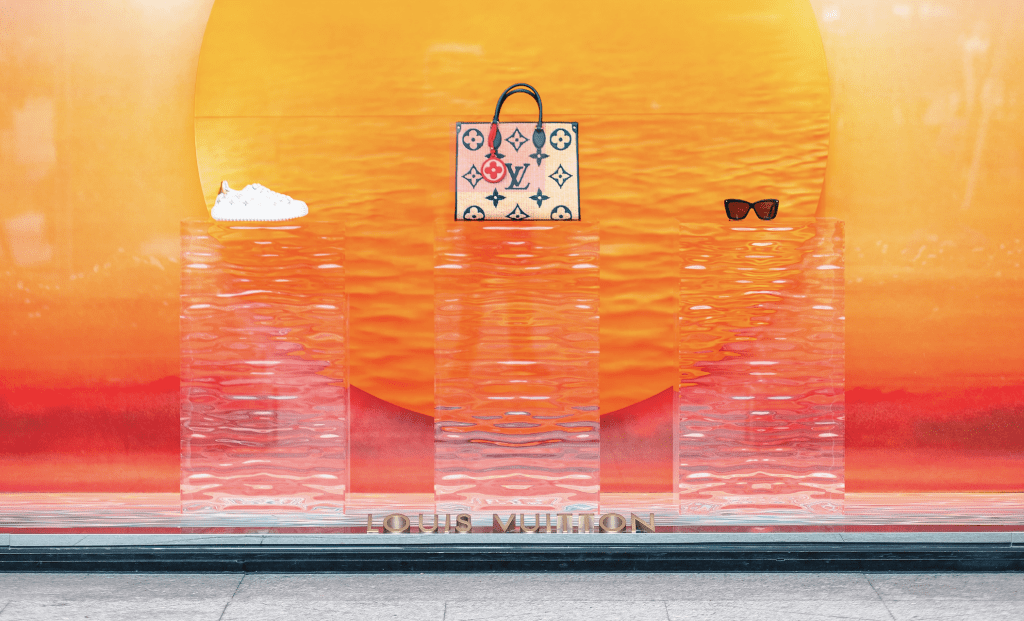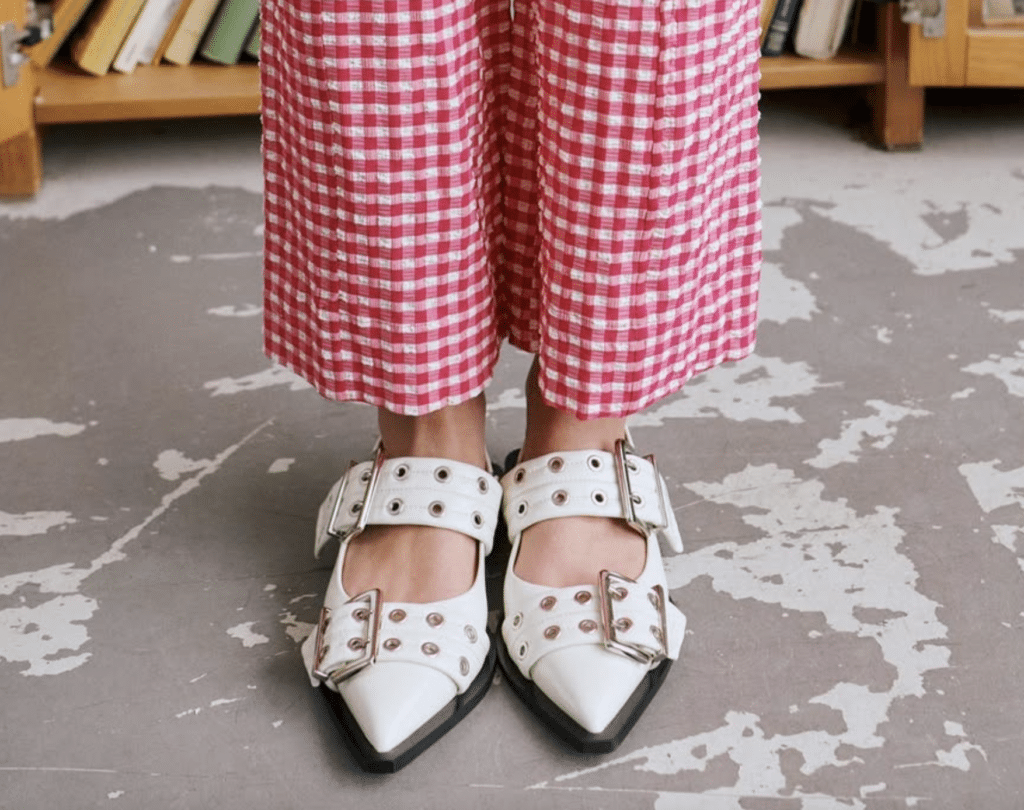Louis Vuitton has succeeded in its attempt to cancel the U.S. registration of another party’s trademark, arguing that a stylized VIITION for use on a variety of homewares and furniture is not only likely to confuse consumers but to dilute the strength of its famous marks. In a non-precedential opinion last month, a panel of administrative judges for the U.S. Patent and Trademark Office’s Trademark Trial and Appeal Board (“TTAB”) sided with Louis Vuitton, granting its petition for cancellation on the basis that Quanzhou Viition Gifts Co., Ltd.’s VIITION mark is likely to chip away at its “exceedingly famous and highly distinctive” trademark.
Setting the stage in the TTAB’s opinion, Administrative Trademark Judge Kuhlke states that in October 2019, Louis Vuitton petitioned to cancel Quanzhou Viition’s mark, which had been registered by the U.S. Patent and Trademark Office in June 2019. Louis Vuitton argued that the stylized VIITION mark “so resembles [its] previously used and registered mark LOUIS VUITTON for a variety of goods” that it “calls to mind” – and thus, is likely to dilute – the distinctiveness of that famous mark, which Louis Vuitton started using decades before Quanzhou Viition’s filing date and date of international registration.
(Quanzhou Viition began using the VIITION mark in China in 2012 for furniture and houseware products and currently uses it on other consumer goods, such as string lights, bird baths, etc., and has since started selling “some of the VIITION-branded products in the U.S. and intends to distribute its goods in the U.S. through large retail outlets featuring low-priced consumer goods, such as Walmart and Amazon,” according to the TTAB. In addition to Louis Vuitton’s aggressive stance on enforcement, Quanzhou Viition’s product expansion and growing stateside use is presumably what prompted counsel for the luxury goods brand to take action.)
Focusing its attention on Louis Vuitton’s dilution by blurring claim, the TTAB asserts that the French luxury goods giant meets the “distinctive, famous mark” requirement for dilution. While “there is no dispute that the mark LOUIS VUITTON is distinctive,” the TTAB judges analyzed the fame of the LOUIS VUITTON mark for dilution purposes to determine whether the mark “is widely recognized by the general consuming public of the U.S. as a designation of source of the goods or services of the mark’s owner.” (Spoiler: It is.)

In deciding that the LOUIS VUITTON mark is, in fact, “exceedingly famous, and entitled to protection against dilution,” the TTAB considered an array of factors, including the degree of similarity between the two parties’ marks, the distinctiveness and recognition of Louis Vuitton’s mark, the extent to which Louis Vuitton uses its mark in a “substantially exclusive” manner, whether Quanzhou Viition intended to create an association with the LOUIS VUITTON mark, and whether there is any actual association between the parties’ marks.
Primarily, the TTAB noted Louis Vuitton’s sale of billions of dollars’ worth of “an enormous range of goods including paperweights, stationery, posters, coasters, plates, cups, cushions, blankets, and candles” throughout the United States, and its pattern of running “broad advertising and marketing campaigns to place its mark in the public eye and consumer consciousness,” including “campaigns in all media, celebrity endorsements, and sponsorships of large cultural, sporting and charity events, [which] expose the [Louis Vuitton] mark to the general public.” The result, according to the TTAB, is that the general public has high actual recognition of the LOUIS VUITTON mark.
In terms of the similarity of the marks, Quanzhou Viition argued against Louis Vuitton’s claims on this front asserting that its mark “does not share the first and dominant portion of [Louis Vuitton’s] mark LOUIS and consumers are generally more inclined to focus on the first word of a mark.” Not persuaded, the TTAB noted that both marks “contain seven letters, begin with V [have] IT in middle and end with ON with V I T O and N in the same order in one short word.” Beyond that, the TTAB agreed with Louis Vuitton, which argued that the lack of a first word (like Louis) in the Quanzhou Viition mark is not a death knell in terms of similarity, as consumers are “accustomed to seeing names shortened for fashion and lifestyle brands.” As a whole, the TTAB determined that the VIITION mark “has a similar visual commercial impression to the VUITTON portion of [Louis Vuitton’s] mark” and as a result, could impair the distinctiveness of Louis Vuitton’s mark.
The TTAB noted that Quanzhou Viition had pushed back against Louis Vuitton’s attempt to cite a separate registration for a mark that consists exclusively of the word “Vuitton,” as well as the brand’s assertion of “use on furniture and other goods not pleaded in the petition for cancellation,” claiming that the brand was looking to “present evidence and testimony on goods beyond those specifically listed in its pleading.” The TTAB agreed that Louis Vuitton did not plead a separate mark VUITTON.
At the same time, the TTAB rejected Louis Vuitton’s earlier claim that its use of the “Louis Vuitton” mark “in connection with a variety of goods including clothing, shoes, accessories, jewelry, bags, retail and online store services, and related goods and services” extends to furniture. However, the panel held that “this does not foreclose the analysis from considering the dominance of VUITTON in the LOUIS VUITTON mark or the practice in the industry to shorten names, in determining whether there is a likelihood of confusion or an association would be made.” The TTAB judges also noted that while Louis Vuitton “may not rely on the unpleaded goods or services for priority purposes,” it can use evidence of use on a variety of goods and services as “evidence of relatedness between its pleaded goods and [Quanzhou Viition] identified goods.”
Looking beyond the similarity of the marks, the TTAB held that there is “no evidence that suggests that [Quanzhou Viition] intended to create an association with [Louis Vuitton’s] mark,” which results in a neutral factor. Similarly, the TTAB found “no evidence of actual public association” between the two parties’ marks, but that is “not surprising” in light of the “the lack of (or minimal) concurrent use in the United States market.”
“Viewing the evidence as a whole,” Administrative Trademark Judge Kuhlke stated that the TTAB panel “concludes that [Quanzhou Viition’s] VIITION mark is likely to dilute the distinctive quality of [Louis Vuitton’s] famous LOUIS VUITTON mark,” thereby, granting Louis Vuitton’s petition to cancel based on dilution by blurring.
This is the latest example in what the TTAB summarizes (testimony from Louis Vuitton counsel) as “a robust enforcement program” maintained by Louis Vuitton, including “regularly fil[ing] extensions of time to oppose potentially infringing marks and send[ing] cease-and-desist letters to applicants, frequently resulting in abandonment.” Beyond that, counsel for Louis Vuitton stated in an earlier round of the proceedings that from 2010 to 2020 Louis Vuitton “has filed at least twelve opposition proceedings involving the LOUIS VUITTON mark,” (here’s one waged by Louis Vuitton in the European Union), and since 2010, it has filed approximately 120 lawsuits in federal district courts to protect its marks, including the LOUIS VUITTON mark.
The cancellation proceeding is Louis Vuitton Malletier v. Quanzhou Viition Gifts Co., Ltd., No. 92072688.











